Debunk common health myths and uncover evidence-based truths about disease, nutrition, and lifestyle to take control of your health and well-being.
The world of health and wellness is flooded with myths that can make it hard to distinguish fact from fiction. Misleading headlines, biased studies, and entrenched beliefs perpetuate many of these misconceptions.
It’s so important to be able to tell the difference between what’s worth your attention and what’s not. Let’s explore some of the most pervasive health myths and uncover the evidence-based truths behind them.
Myth 1: Disease Is Inevitable
Healthy eating patterns prevent chronic disease. True or false? Mainstream media may have you leaning toward the latter.
It’s a common belief that diseases like diabetes, high blood pressure, and cancer are inescapable, especially if they run in your family. While genetics can play a role, lifestyle is the dominant factor influencing most health outcomes.
As Dr. Caldwell Esselstyn famously said, “Genes load the gun, but lifestyle pulls the trigger.”
Fact Check
Lifestyle choices, including diet and exercise, trump genetics. For example, individuals with obesity who have a low genetic risk for diabetes are still far more likely to develop the condition than leaner, health-conscious individuals with a higher genetic risk.
Takeaway
Your health trajectory is largely in your hands. Focusing on healthy habits can significantly reduce your risk of developing chronic illnesses. Everyday actions like moving your body, eating a variety of nutrients, getting enough sleep, and managing your stress are critical.
Myth 2: You Only Lose a Few Years by Abusing Your Body
Some believe that indulging in unhealthy habits only shaves a few years off their lives, with the idea of a peaceful death at an average age. However, the reality is far different. Poor lifestyle choices often lead to years of disability, dependence on others, and reliance on expensive medications.
Fact Check
Chronic illnesses don’t just shorten life—they severely impact its quality. Conditions like erectile dysfunction, often dismissed as a natural part of aging, are largely preventable through healthy lifestyle choices. Nobody wants to live into their 90s if they have a poor quality of life and can’t enjoy these years—and you can do things to support longevity with higher quality.
Takeaway
Investing in your health today ensures not only a longer life but a more vibrant and independent one.
Myth 3: Health Is a Private Matter
While health may feel personal, it has significant public implications. Chronic conditions like diabetes and heart disease contribute to skyrocketing healthcare costs, which affect everyone through higher insurance premiums and taxpayer-funded programs like Medicare.
Fact Check
Ninety percent of healthcare expenses in the U.S. are attributed to chronic diseases—most of which are preventable with diet and lifestyle changes. Ninety percent!
Takeaway
Improving individual health has ripple effects, reducing the financial and societal burden on communities.
Myth 4: Cancer Is Just Bad Luck
Cancer is often seen as an unavoidable roll of the dice. While this belief may provide some comfort, it’s not entirely accurate. Up to half of all cancer deaths are preventable, according to the World Health Organization (WHO).
Fact Check
Factors like poor diet, alcohol consumption, and processed meats are proven contributors to cancer risk. For instance, processed meats are classified as Group 1 carcinogens, placing them in the same category as smoking.
Takeaway
Making informed dietary choices—such as limiting alcohol and avoiding processed meats—can significantly lower your cancer risk.
Myth 5: You Can Be Healthy at Any Weight
Body positivity is vital, but it’s equally important to recognize that obesity is a serious medical condition. Carrying excess weight increases the risk of diseases like diabetes, heart disease, and cancer.
Fact Check
While criticism or shame about weight is harmful, obesity itself poses undeniable health risks. Fat tissue is now understood to function as an endocrine organ, releasing hormones that influence metabolism, immunity, and vascular health.
Takeaway
Compassion and self-acceptance are essential, but so is acknowledging the importance of a healthy weight for overall well-being.
Myth 6: Nutrition Science Is Confusing and Conflicting
The media often portrays nutrition research as contradictory, but the science is actually quite clear. The confusion stems from sensationalized headlines and industry-funded studies designed to sow doubt.
Fact Check
The food and beverage industry, much like the tobacco industry in the past, funds research to create confusion about the health effects of their products. For example, studies touting the benefits of butter or sugary cereals often rely on flawed methodologies.
Takeaway
Stick to well-established guidelines: prioritize whole, plant-based foods, minimize processed foods, and question industry-backed “research.”
The Bottom Line: Awareness Is Power
Misinformation about health abounds, but knowledge empowers us to make better choices. By understanding the truth behind these myths, we can take control of our health and work towards a longer, healthier, and more fulfilling life.
As one saying goes: Without awareness, there is no free choice. Now that you’re aware, the power to act is yours.
Let’s Get Started
If you’re ready to take control of your health, but aren’t sure where to start to make lasting changes, I can help. Learn about my personalized health and wellness coaching and contact me with questions.
Want more? Check out my episode on this topic on my Get Out of Your Own Way podcast below.
Save for later—Pin This Post!
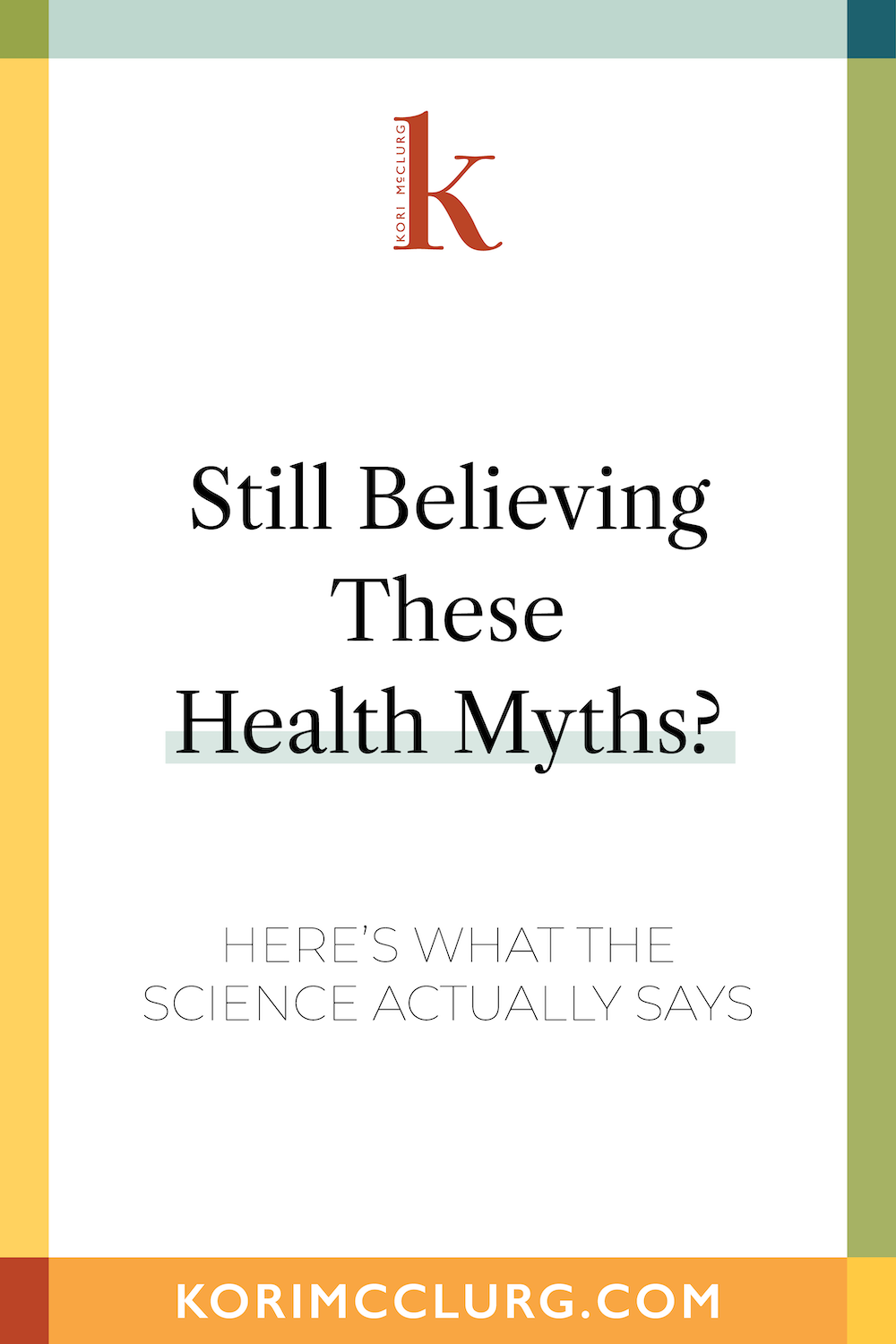
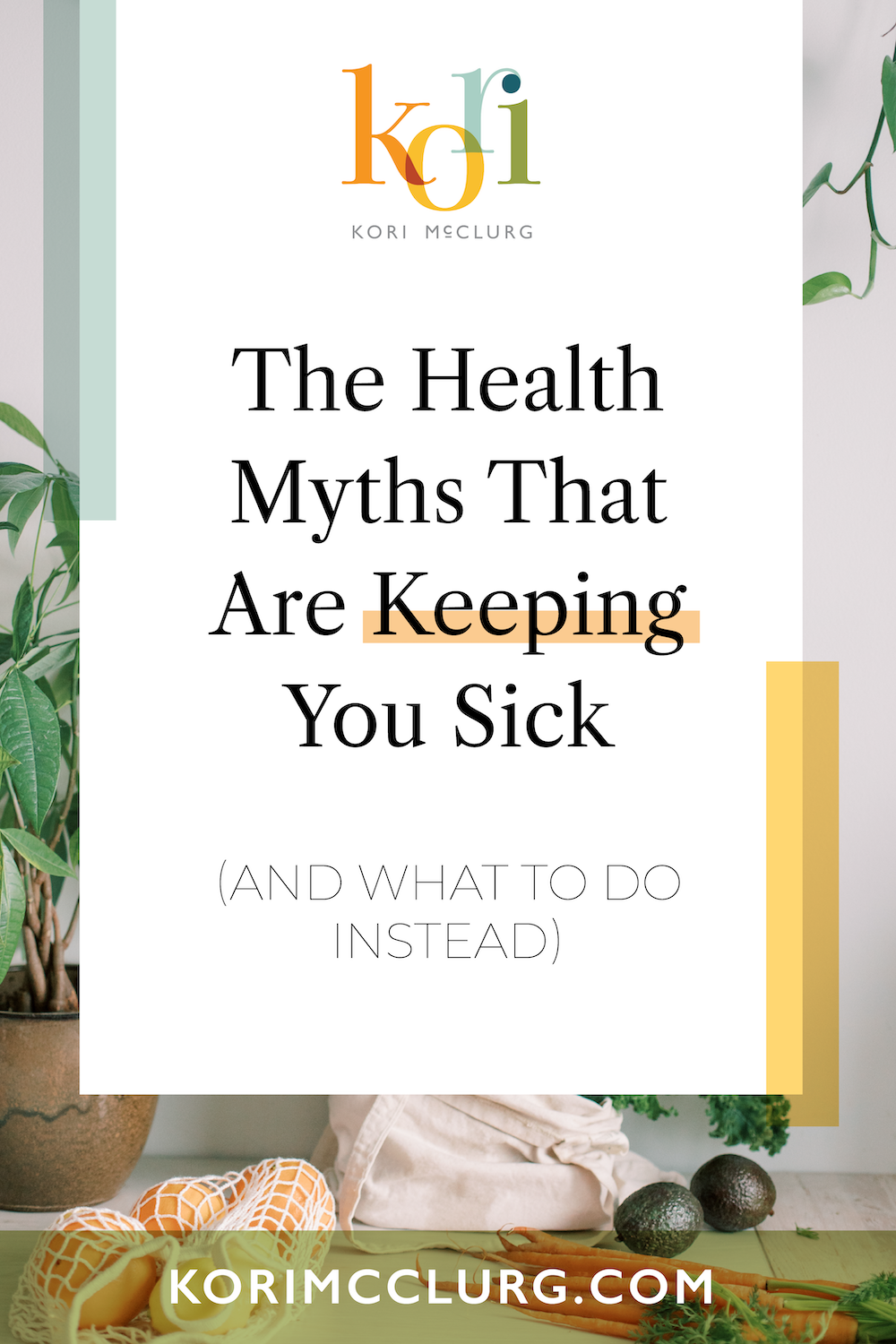
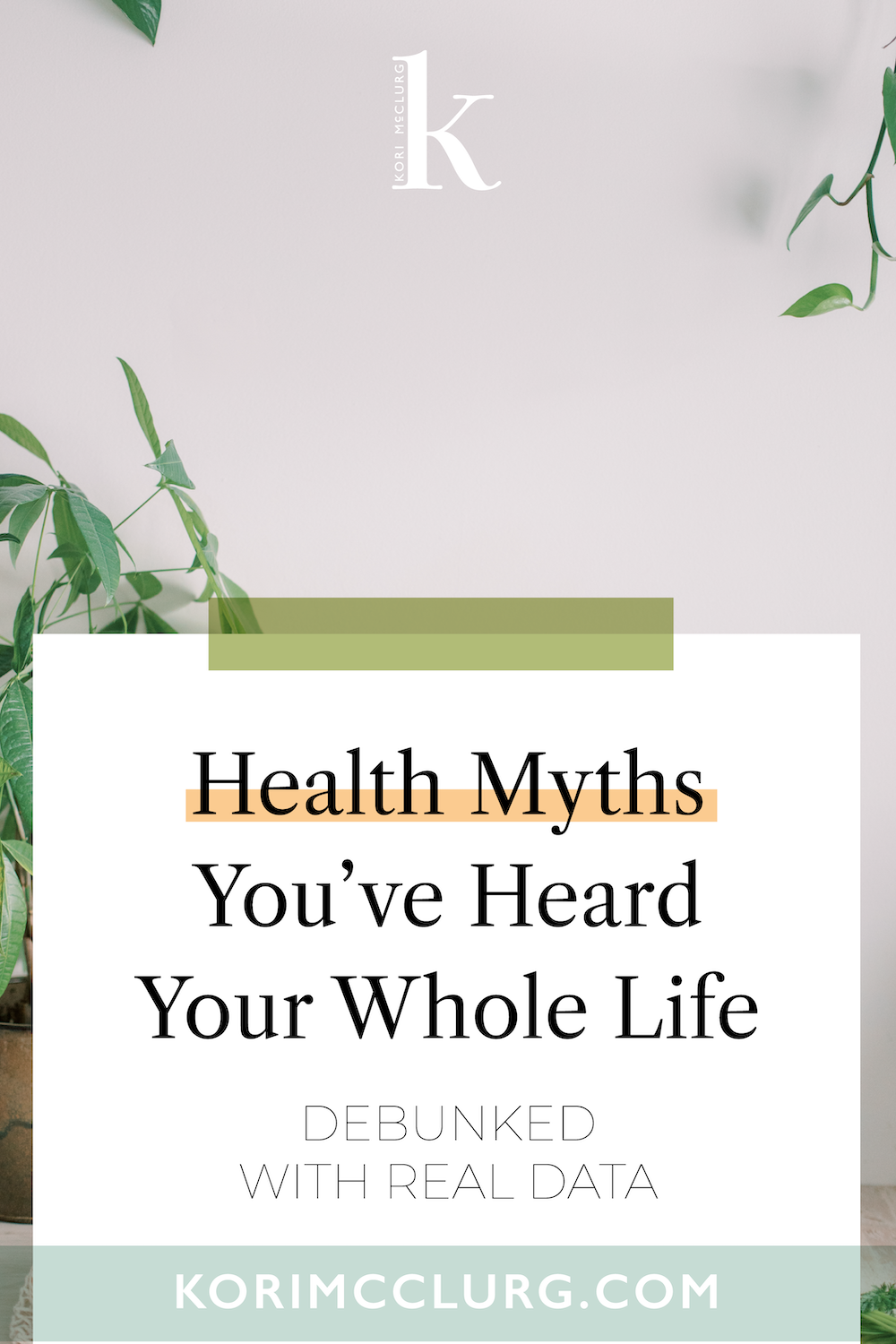
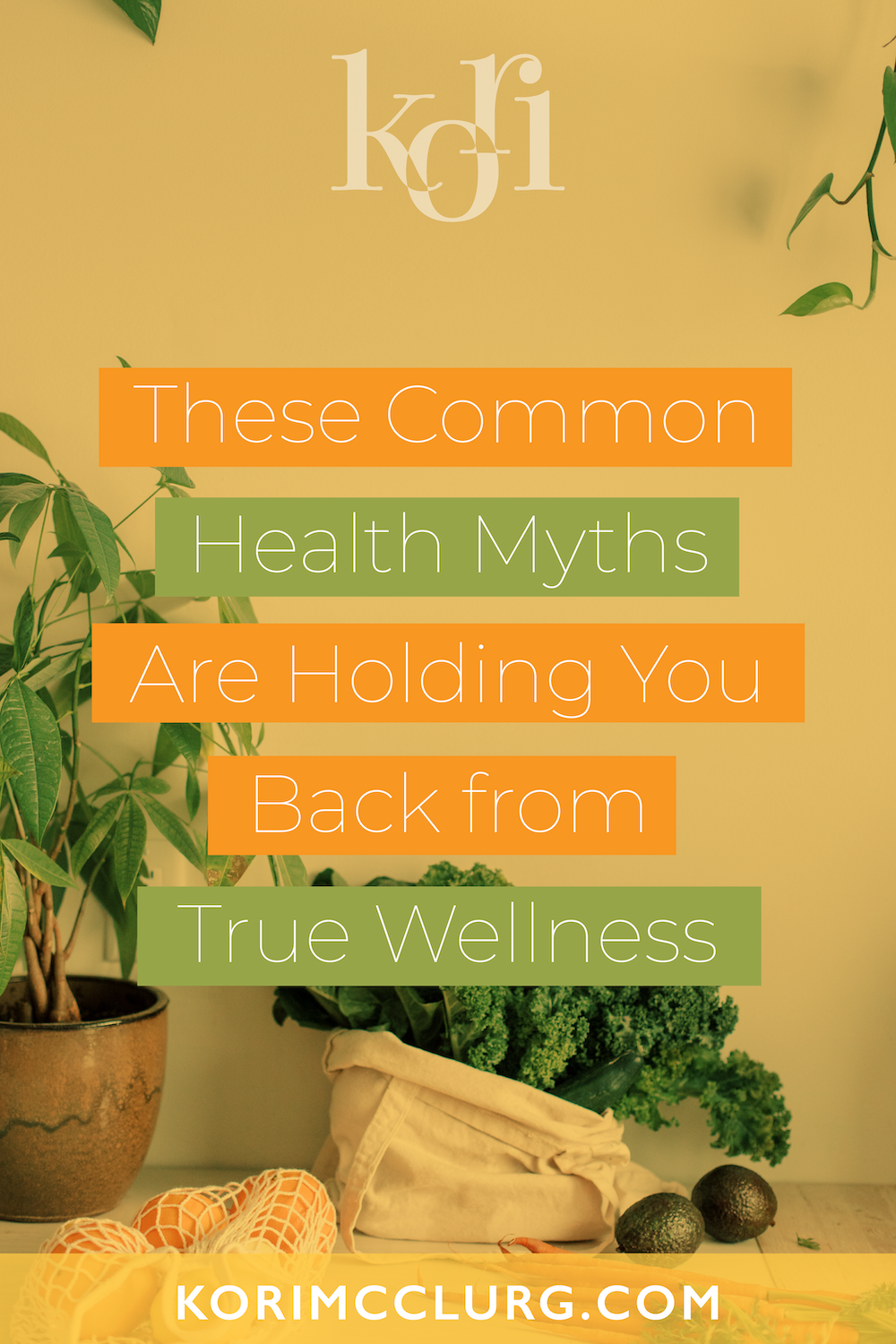
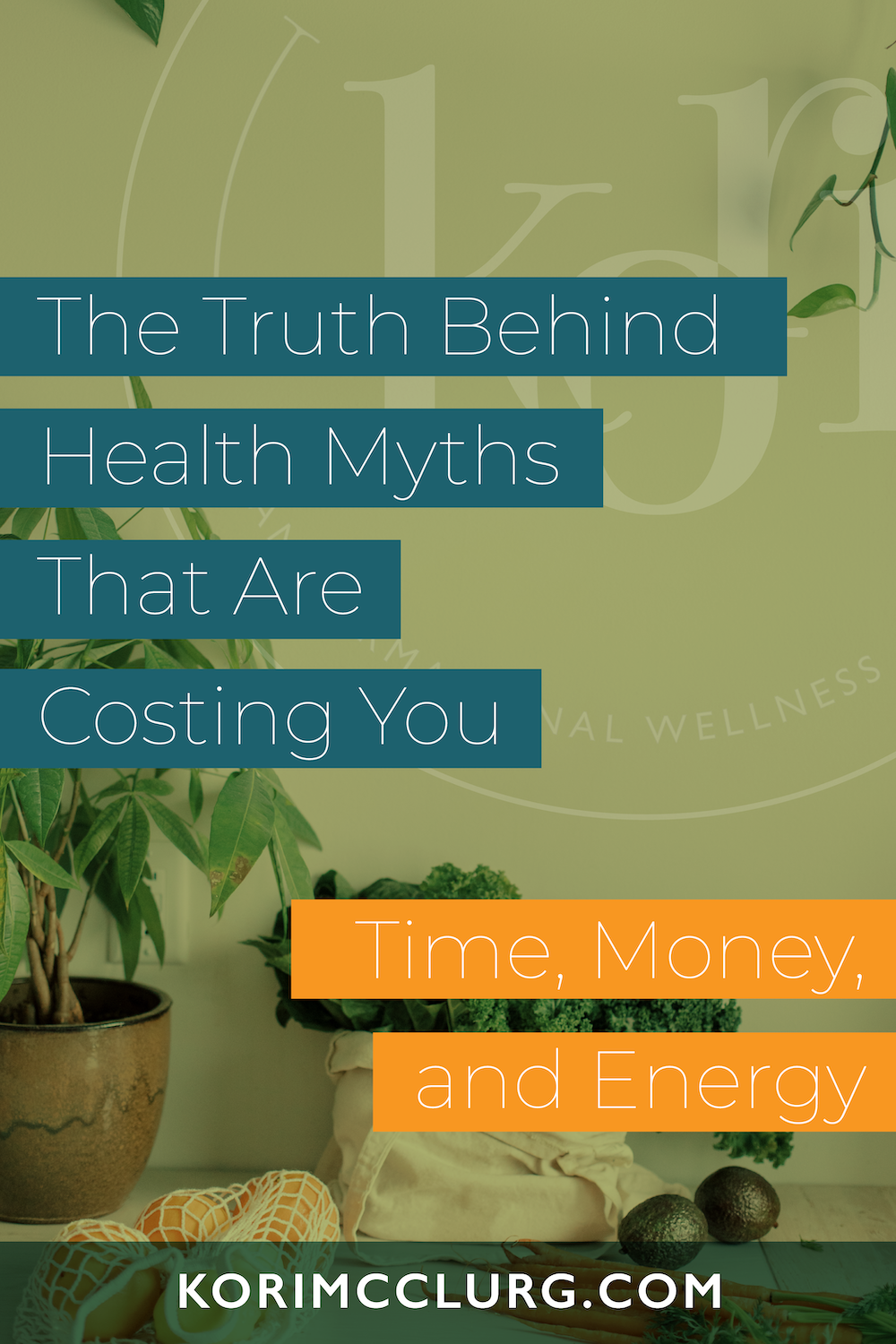
December 10, 2024
All content ©Kori McClurg 2025
Branding & Site Design by Moriah Riona Branding
All content ©Kori McClurg 2025